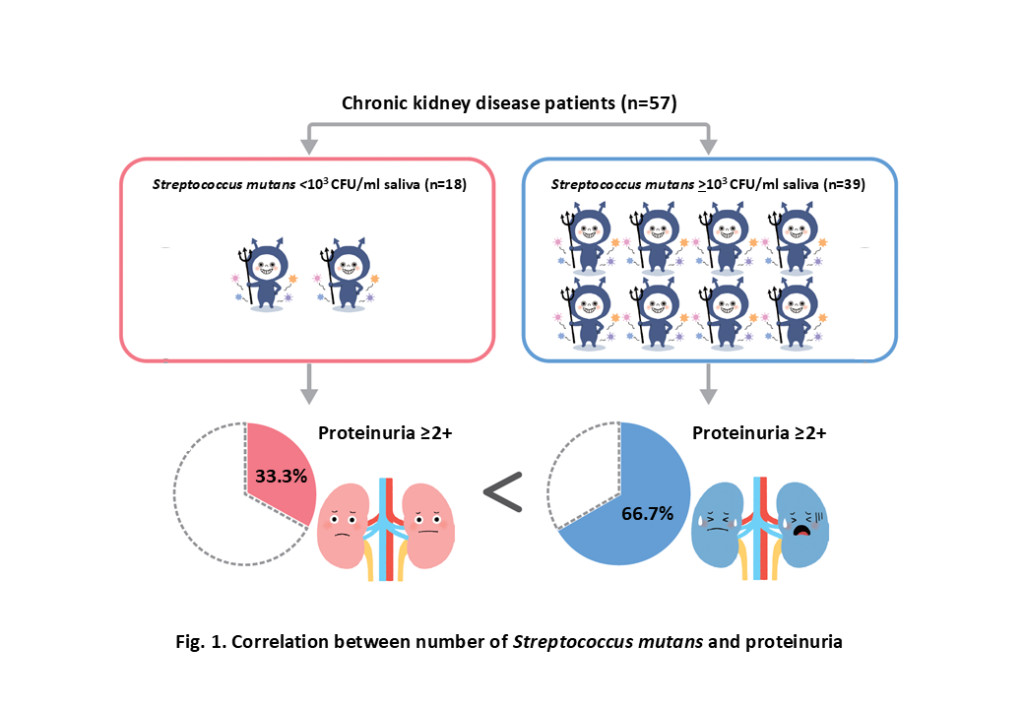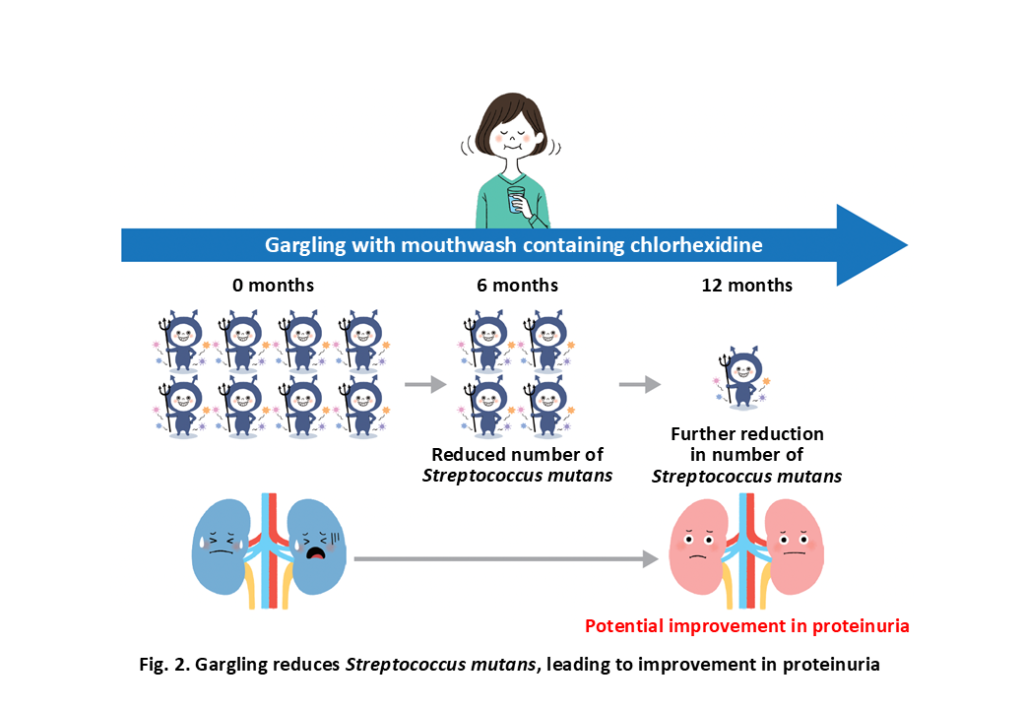Mouthwash May Improve Proteinuria in CKD Patients by Reducing Oral Caries Bacteria


Kazuhiko NAKANO, Taro MISAKI
Joint Research Laboratory for Oral and Systemic Connection
A research group has discovered a significant association between the abundance of caries-causing bacteria in the saliva of chronic kidney disease (CKD) patients and the levels of proteinuria. Furthermore, their preliminary findings demonstrate the potential for rinsing with chlorhexidine-containing mouthwash to reduce oral caries-causing bacteria, which could consequently lead to an improvement in proteinuria.
While an association between caries-causing bacteria and IgA nephropathy (IgAN), one of the underlying causes of chronic kidney disease, has been reported in recent years, the precise impact of mouthwash rinses on both oral and systemic health had remained unclarified.
Although this study is still in its preliminary stages, it is anticipated that in the future, the routine use of mouthwash rinses by chronic kidney disease patients could lead not only to a reduction in caries-causing bacteria but potentially also to an improvement in the overall condition of chronic kidney disease.
The article, “Association between oral Streptococcus mutans counts and proteinuria in patients with chronic kidney disease: a pilot study using chlorhexidine,”was published in the JMA Journal on November 21 at doi: https://doi.org/10.31662/jmaj.2025-0375
